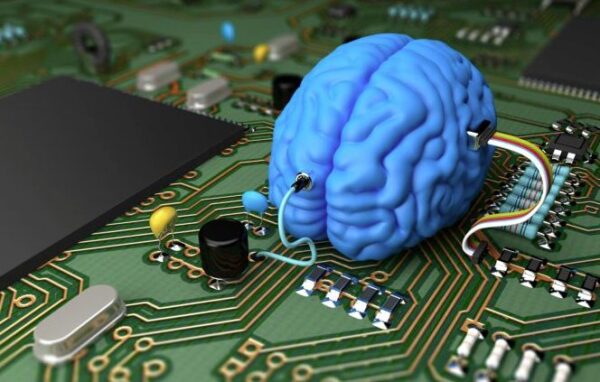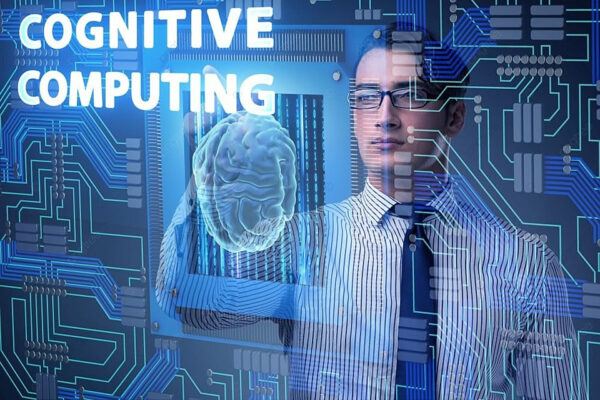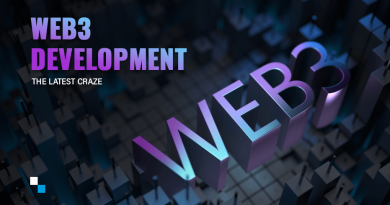Unlocking Potential: The Future of Cognitive Computing
In the fast-paced world of technology, cognitive computing is emerging as a groundbreaking force that integrates human-like reasoning with advanced computational capabilities. Unlike conventional computing systems, which follow predetermined algorithms, cognitive computing systems possess the ability to learn and evolve from experiences. This characteristic enables them to process intricate data and offer insights that parallel human thought processes. As a result, cognitive computing is not merely a trend; it’s a revolutionary technology that is reshaping industries and refining decision-making in remarkable ways.
Understanding Cognitive Computing:
Cognitive computing encompasses systems that utilize artificial intelligence (AI) to emulate human cognitive functions in multifaceted scenarios. By harnessing machine learning, natural language processing (NLP), and data mining, these systems can analyze vast amounts of unstructured data, yielding insights and solutions that traditional computing systems often cannot achieve.
The primary aim of cognitive computing is to develop systems capable of learning from their interactions, comprehending natural language, and making inferences. This ability fosters a new level of interaction between humans and machines, leading to more seamless and intuitive user experiences.
Essential Elements of Cognitive Computing:
- Machine Learning:
Central to cognitive computing, machine learning involves algorithms that enhance their performance with increased exposure to data. This allows systems to discern patterns, forecast outcomes, and adjust to new information autonomously.
- Natural Language Processing (NLP):
NLP enables cognitive systems to comprehend, interpret, and respond to human language in a meaningful way. This technology is vital for applications such as virtual assistants, chatbots, and customer support platforms.
- Data Mining:
Cognitive computing excels at exploring extensive amounts of unstructured data, such as social media content, emails, or news articles, to derive valuable insights. This ability is essential for businesses aiming to capitalize on data for informed decision-making.
- Reasoning and Problem Solving:
Cognitive systems are designed to reason through complex problems and offer solutions. They can evaluate situations, consider alternatives, and suggest recommendations based on past experiences, proving invaluable in sectors like healthcare, finance, and logistics.

Transformative Applications:
Cognitive computing is already having a profound impact across various domains:
- Healthcare:
In the medical field, cognitive computing systems can evaluate patient information to assist in diagnoses and treatment recommendations. For instance, IBM’s Watson Health leverages cognitive computing to analyze medical literature and patient histories, helping healthcare professionals develop effective treatment strategies.
- Finance:
Within the financial sector, cognitive computing enhances fraud detection by scrutinizing transaction patterns and identifying irregularities in real-time. This capability significantly mitigates risks and bolsters security for financial institutions.
- Customer Support:
Businesses are increasingly turning to cognitive chatbots to provide around-the-clock assistance. These bots learn from user interactions, improving their responses over time and offering customers a more tailored experience.
- Supply Chain Optimization:
Cognitive computing streamlines supply chains by predicting demand, assessing inventory levels, and proposing logistical solutions.
Navigating Challenges:
Despite its vast potential, cognitive computing encounters several challenges. Issues such as data privacy, ethical dilemmas, and the risk of algorithmic bias require careful consideration. Additionally, integrating cognitive systems into existing processes demands significant investment and change management efforts.
Looking Ahead:
The future of cognitive computing is filled with promise, with potential applications limited only by our creativity. As technology progresses, cognitive systems are expected to become increasingly sophisticated, making them essential tools across various sectors.
Organizations that embrace cognitive computing today will not only secure a competitive advantage but also contribute to the development of a smarter, more efficient world. The journey toward widespread adoption is ongoing, and collaboration among businesses, policymakers, and technologists will be vital in addressing the challenges and maximizing the potential of this transformative technology.
Final Thoughts:
Cognitive computing is pushing the boundaries of what machines can accomplish. By emulating human cognitive processes, it empowers organizations to make informed decisions, enhance customer interactions, and innovate in ways previously deemed impossible. As we advance, the synergy between human intuition and machine intelligence will undoubtedly shape the technological landscape, ushering in an era of unprecedented opportunities.
FAQs:
1. What is cognitive computing?
Cognitive computing encompasses advanced systems that utilize artificial intelligence and machine learning to replicate human cognitive functions. These systems analyze intricate datasets, learn from experiences, and adapt over time, allowing them to solve complex problems and make informed decisions.
2. How is cognitive computing different from conventional computing?
Unlike conventional computing, which relies on predefined algorithms and structured data, cognitive computing is designed to process unstructured data and learn from it. This ability enables cognitive systems to recognize patterns, draw conclusions, and provide insights that traditional systems might miss.
3. In what industries is cognitive computing being utilized?
Cognitive computing is making waves across multiple industries, including healthcare—where it aids in diagnostics—finance for detecting fraudulent activities, customer service through smart chatbots, and logistics for streamlining supply chain operations. These applications enhance efficiency and improve decision-making processes.
4. What role does machine learning play in cognitive computing?
Machine learning is integral to cognitive computing, enabling systems to improve their performance over time as they process more data. This adaptive capability allows cognitive systems to identify trends and make predictions autonomously, enhancing their accuracy and effectiveness.
5. How does natural language processing (NLP) fit into cognitive computing?
Natural language processing is essential for cognitive computing, allowing systems to interpret and engage with human language. This capability facilitates seamless interaction between users and technology, powering applications like virtual assistants and intelligent chatbots that can respond naturally to inquiries.
6. Can cognitive computing systems function independently?
Yes, cognitive computing systems can operate independently to some degree. They can analyze data, make decisions, and perform tasks based on their learned experiences without constant human oversight. However, human supervision is often necessary to ensure ethical standards and accuracy.
7. What ethical issues arise with cognitive computing?
Cognitive computing introduces several ethical challenges, including concerns about data privacy, potential algorithmic bias, and misuse of technology. Organizations must establish comprehensive ethical guidelines and governance frameworks to address these challenges and promote responsible technology use.
8. How can businesses implement cognitive computing technologies?
Businesses can adopt cognitive computing by identifying specific processes or challenges that the technology can enhance. Collaborating with technology partners, investing in workforce training, and integrating cognitive solutions alongside existing systems can facilitate a successful implementation.
9. What qualifications are needed to work in cognitive computing?
Professionals aiming to enter the field of cognitive computing should have a solid background in data science, artificial intelligence, and machine learning. Skills in programming, data analysis, and a keen understanding of ethical considerations are also crucial for success in this evolving domain.
10. What does the future of cognitive computing look like?
The future of cognitive computing is filled with potential, driven by continuous advancements in AI and machine learning. As these technologies evolve, we can expect cognitive systems to play an even more significant role across various sectors, enhancing human capabilities and revolutionizing our interactions with machines.




